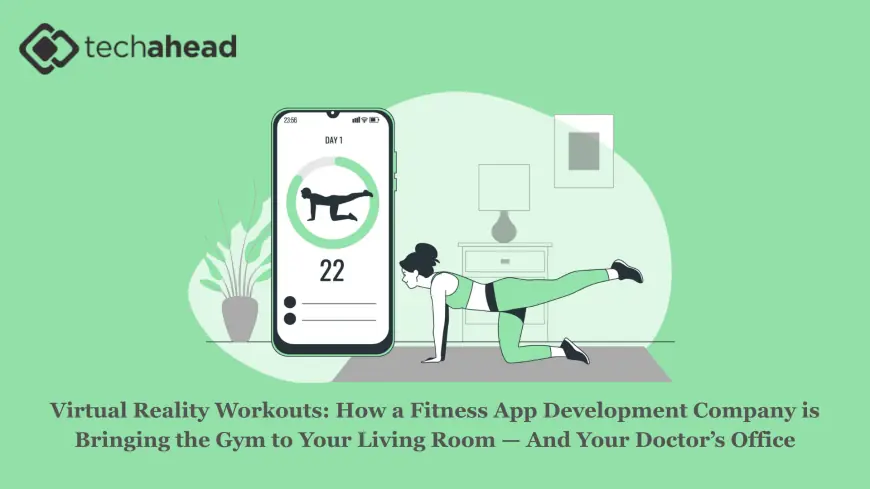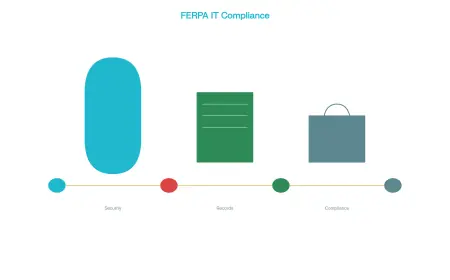Virtual Reality Workouts: How a Fitness App Development Company is Bringing the Gym to Your Living Room — And Your Doctor’s Office
Explore how a fitness app development company is using virtual reality workouts to bring the gym to your living room and your doctor’s office in 2025, blending fitness and healthcare for smarter wellness.

Imagine swapping a crowded gym for a mountaintop in the Alps — without leaving your living room. Or picture recovering from knee surgery by cycling through a VR forest, guided by a digital coach and monitored by your doctor in real time. Welcome to the future of fitness and healthcare, powered by immersive technology.
In 2025, a leading Fitness app development company isn’t just designing slick mobile interfaces — they’re building virtual worlds that make exercise feel like an adventure. Equally, a modern Healthcare app development company is exploring how these same immersive tools can revolutionize physical therapy, pain management, and mental health treatment.
Let’s dive into how VR is transforming not just how we work out — but how we heal.
The Big Shift: From 2D Workouts to 3D Experiences
Traditional fitness apps helped millions get active by putting trainers, plans, and trackers in our pockets. But for many, motivation still drops off quickly. Screens can’t match real-life immersion — until now.
A forward-thinking Fitness app development company is harnessing Virtual Reality (VR) to solve the “engagement problem.” VR turns exercise into an experience: boxing in a neon arena, climbing Everest, dancing in a virtual nightclub — all from your living room.
This shift taps into one powerful truth: the more fun a workout feels, the more likely you are to stick with it.
VR for Healthcare: More Than Just Fun
VR isn’t just for burning calories — it’s finding powerful use cases in medicine too. Physical therapists are using VR to guide patients through rehab exercises in more engaging, motivating ways.
A Healthcare app development company developing VR rehab apps can customize sessions to a patient’s range of motion, pain levels, and goals. Gamified tasks distract patients from discomfort, making it easier to complete challenging movements. This is especially helpful for stroke recovery, post-surgery mobility, or chronic pain therapy.
Combining VR Fitness with Medical Monitoring
Imagine a patient recovering from an ACL tear. Instead of driving to a clinic three times a week, they slip on a VR headset at home. Their movements are tracked by motion sensors that feed data back to their physical therapist — who adjusts the plan remotely.
A visionary Fitness app development company might design the front-end VR experience: the virtual coach, the game-like tasks, the beautiful environments that keep patients engaged. The Healthcare app development company makes sure that session data is secure, accurate, and easy for medical staff to review — so recovery stays on track.
Making Workouts Social in VR
One reason people stick with gyms is community — the energy of a class, the camaraderie of a running group. VR recreates this, without the commute or the intimidation factor.
Modern VR fitness apps now include multiplayer modes. You can box with a friend across the country, compete in global leaderboards, or join a virtual cycling club that rides through Paris at dawn.
A smart Fitness app development company understands that community is key. VR brings human connection back to solo workouts — blending physical movement with social play in a safe, accessible way.
Mental Health: VR’s Secret Superpower
Beyond fitness and physical therapy, VR is gaining ground in mental wellness too. Immersive meditation apps transport users to peaceful beaches or enchanted forests for guided relaxation. Exposure therapy for phobias, PTSD, or anxiety can be delivered safely through VR.
A hybrid Fitness app development company might build VR mindfulness and stress-reduction modules right alongside cardio games. A Healthcare app development company ensures these experiences align with clinical best practices and integrate with teletherapy platforms, so real counselors can guide patients when needed.
Wearables and VR: The Perfect Pair
VR isn’t working alone. Next-gen wearables amplify its impact. Smart suits with haptic feedback let you feel resistance or impact. Connected heart rate monitors adjust VR workout intensity in real time. Posture sensors correct your form mid-session.
A leading Fitness app development company designs the VR software to sync seamlessly with this hardware. Meanwhile, a Healthcare app development company ensures the health data generated — heart rate, range of motion, recovery time — feeds securely into patient records if needed.
Overcoming Barriers: Cost and Accessibility
Of course, VR isn’t a magic fix — yet. High-end headsets and accessories can be expensive, and some people get motion sickness. But prices are dropping fast, and standalone headsets are becoming more user-friendly.
A smart Fitness app development company focuses on optimizing VR apps for affordable devices and designing experiences that work in tight spaces — a big plus for urban users.
A Healthcare app development company works on reimbursement models and partnerships with hospitals, insurers, or employers to cover costs — so VR rehab or mental health programs become accessible to all, not just tech-savvy early adopters.
Privacy and Safety in Immersive Spaces
With immersive tech comes fresh responsibility. VR workouts and therapy sessions collect personal health data, track physical movement, and even record audio and visual cues.
A trustworthy Fitness app development company encrypts every data point, giving users total control over what’s shared. A reputable Healthcare app development company ensures strict compliance with medical privacy laws like HIPAA and GDPR.
Clear consent, robust security, and ethical AI will be the cornerstones of VR’s credibility as it moves deeper into mainstream care.
What’s Next: The Metaverse of Wellbeing
Looking ahead, the future of VR fitness and healthcare might blend with broader virtual worlds — the so-called “health metaverse.” Imagine joining a virtual clinic, where you can consult doctors, take fitness classes, meditate, and chat with fellow patients — all without leaving home.
A forward-looking Fitness app development company might design immersive studios, interactive gear, or entire wellness communities. A Healthcare app development company could power the secure, interoperable backend that connects patient data, telemedicine sessions, and real-time biometrics — creating a seamless ecosystem for mind and body.
Conclusion
For decades, fitness and healthcare have struggled to keep people engaged. VR changes the game by making wellness truly immersive, personal, and fun — turning daily movement or medical rehab into something you actually look forward to.
But making this vision real depends on the quiet, complex work of every bold Fitness app development company building the experiences, and every trusted Healthcare app development company safeguarding the data and medical impact behind the scenes.
The gym, the clinic, the meditation room — they’re not disappearing. They’re evolving. And the next time you pull on a VR headset, you won’t just be escaping reality — you’ll be building a healthier one.
What's Your Reaction?
 Like
0
Like
0
 Dislike
0
Dislike
0
 Love
0
Love
0
 Funny
0
Funny
0
 Angry
0
Angry
0
 Sad
0
Sad
0
 Wow
0
Wow
0


















































